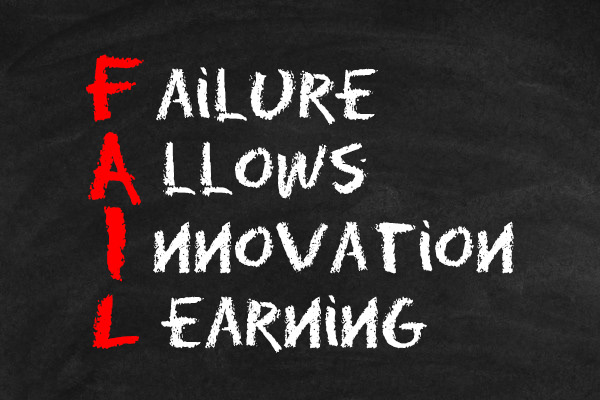There’s a great phrase often used by entrepreneurs, startup founders and those who consult for them: Fail Better. Like so many phrases in modern business lexicon, it is of curious origin (see sidebar). For the purpose of this discussion, let’s assume it means learn from your mistakes or failures.
No one likes to talk about failure in business, politics or sports. But since 80%-90% of all startups fail (by some definition) it makes sense for entrepreneurs to embrace failure for the purpose of learning from it. Research shows that failing better works [1]:
Startups that pivot once or twice raise 2.5x more money, have 3.6x better user growth, and are 52% less likely to scale prematurely than startups that pivot more than 2 times or not at all.
Learning from our own failure
We’ve been involved in three startups from three different business categories. All have failed to achieve their potential. All three are still operating as small home-based or secondary businesses, so they wouldn’t necessarily be called failures by the people running them. But they have failed to scale, and for investors, that is the definition of startup failure.
We were integral to the initial funding process for two of the three. We were intimately involved in the marketing for all. Our previous MW post on what we learned working with startups was before failure: THE ANGELS AND DEMONS OF STARTUP. Here is what we learned from failure, including our own:
- Pricing may be the hardest thing to get right, especially in the software and SaaS category where variable costs are almost non-existent. The use of distributors and third-party sales teams can quickly make your carefully-structured pricing non-competitive. This must be why there are management consulting firms that only do pricing engagements. Real proof of concept includes real pricing, not just that customers like the product or service when it’s free or on trial.
- A startup founder’s emotional intelligence is more important than their intellect or education. It allows the person behind the startup to deal with inevitable adversity and learn from failure. Though worded differently, this is also a key finding of the ground-breaking Startup Genome Report, referred to above.
- Startup founders (and many others) tend to value working hard over working smart. This is the core idea behind MW post CONTEXT IS EVERYTHING. Because the founder’s investment is personal, they struggle with the critical financial principle that sunk costs are irrelevant in new investment decisions. Sometimes early-stage financial investors fall prey to this thinking as well. The people behind the startup need to be able to say, when and if it’s necessary, that the great ride is over, or that this is as far as that ride can take us.
Yes, my good students of startup, fail better, until you’re not failing at all.
- Max Marmer, Bjoern Lasse Herrmann, Ertan Dogrultan and Ron Berman, Startup Genome Report, 2011. Definitely worth the read.
- Samuel Beckett image credit: Jane Bown/Observer.






